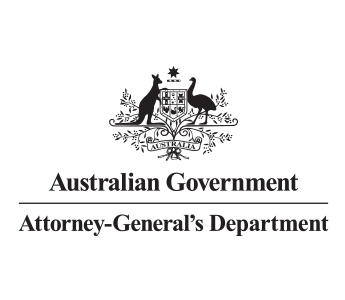Introduction
Table of contents
Overview
This page provides an introduction to the guide and encourages public servants to link fraud and corruption risk management with broader APS responsibilities regarding stewardship and policy delivery.
If not appropriately considered and managed in the design phase, fraud and corruption can directly undermine the objectives of any government policy or initiative and lead to a range of harms. If not properly managed, fraud and corruption reduce public confidence in government, lead to higher taxes to pay for services, compound disadvantage and directly increase costs for all Australians. Fraud and corruption also have a corrosive impact on society; undermining the rule of law, weakening democracy, hampering economic development, and exacerbating social division and inequality.
As a policy officer, you are in a unique position to identify the potential for fraud and corruption impacts up-front and design government policy and initiatives in a way that reduces fraud and corruption and limits these harms while still achieving core government objectives.
How to use this guide
By applying a fraud and corruption lens to the APS Model for Delivering Great Policy, this guide identifies practical steps you can take to:
- achieve desired policy objectives by identifying and reducing the potential for fraud and corruption during the design process, and
- comply with obligations under the Commonwealth Fraud and Corruption Control Framework, and other requirements in the APS.
This guide also points you to a range of other helpful resources including:
- other relevant guidance and tools at Appendix A, and
- examples of measures to help safeguard against fraud and corruption at Appendix B.
This guide should be considered alongside the Countering Fraud and Corruption by Design Toolkit, which provides further practical guidance on how to design and develop fraud and corruption resistant policies or initiatives.
Our Stewardship role in the APS
Stewardship is a new APS Value under the Public Service Act 1999. It is the practice of caring for something that you have been trusted to look after. Effective Stewardship requires accepting responsibility for that care, and working to ensure the long-term integrity and sustainability of what has been entrusted to us.
This practice is a shared responsibility across the APS and is reflected in the decisions we make – from the advice we provide to government, to the way we work together across entities, to how we care for the public trust placed in us.
Whether you are a policy officer or senior official, this guidance will help you be an effective Steward and ensure the long-term integrity and sustainability of the policies or initiatives entrusted to the public sector to design and deliver.
The Model for Delivering Great Policy
The APS Model for Delivering Great Policy, as outlined by the Australian Public Service Commission, emphasises four key elements:
- Clear on intent: We are clear on the policy intent and what our role is, so our advice is relevant and focused on the outcome we’re trying to achieve.
- Well informed: We are forward looking and learn from the past. We actively seek multiple and diverse perspectives including from those affected by the policy, so we have a robust evidence-base.
- Practical to implement: We work with those involved in implementation and try out multiple options, so we have a practical solution and a plan for evaluation.
- Influential: The right people have been engaged along the way, and our advice is tailored to the audience and context so it has the best chance of landing well with key stakeholders and decision-makers.
The following sections of this guide apply a fraud and corruption lens to these four elements and identify specific behaviours and practices you can apply to safeguard your policy or initiatives from the impacts of fraud and corruption across the policy lifecycle.

